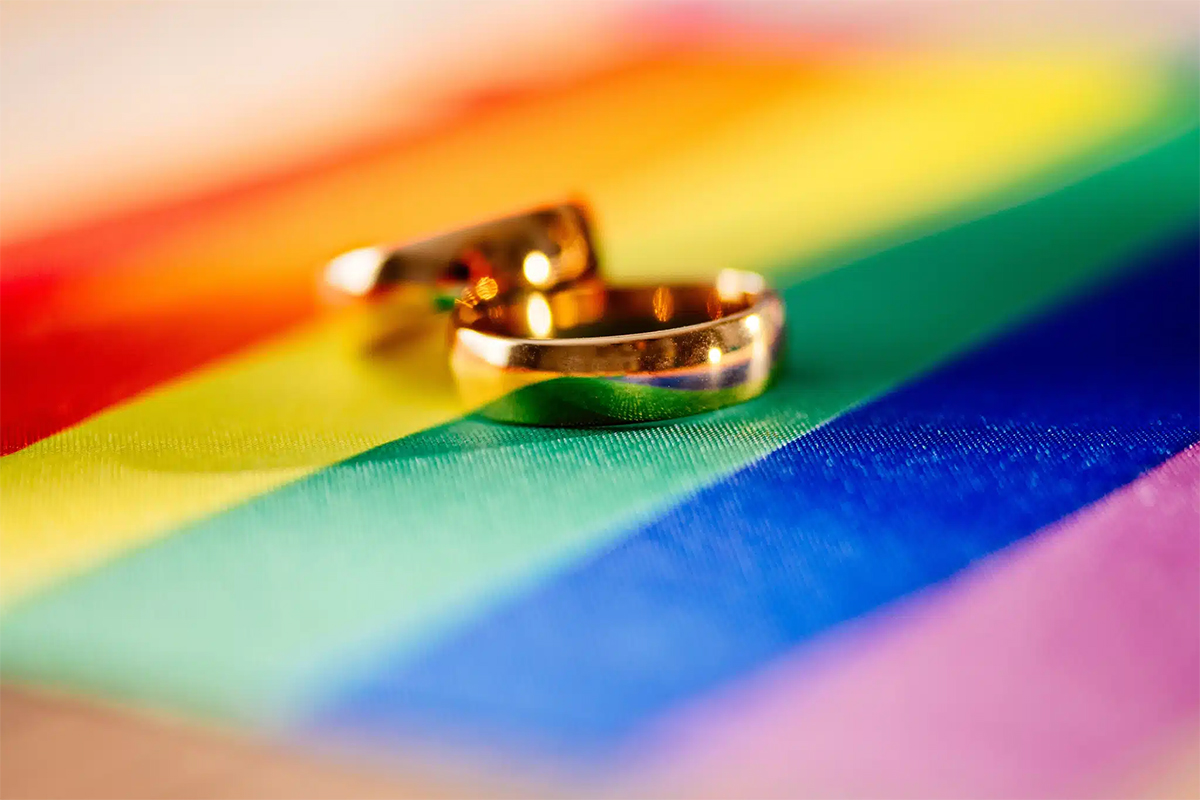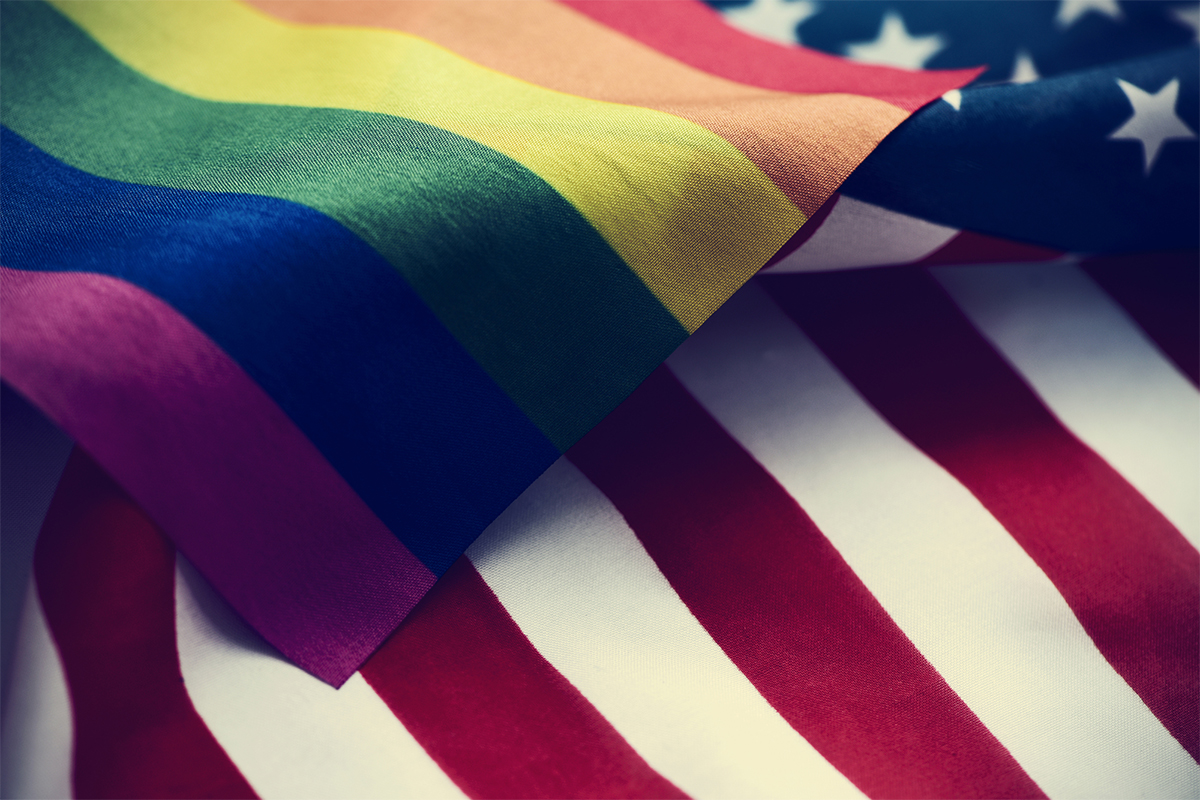Top 5 Reasons Husbands Initiate Divorce
USA Teenage Divorce Statistics
5 Signs of Financial Abuse in Marriage
Creating the Perfect Parenting Plan
Are People Happier After Divorce?

There were almost a million same-sex couple households in the U.S. in 2017 and just over half (51.7%) of them were female coupled households. [1]
A significant turning point in the battle for marriage equality occurred on June 26, 2015, when the United States Supreme Court issued a landmark ruling in the case of Obergefell v. Hodges. The court held that same-sex couples have a constitutional right to marry, overriding any state laws that previously banned or denied recognition of gay marriage. This groundbreaking decision was a culmination of years of advocacy and litigation by LGBTQ+ rights organizations and individuals across the country. [2]
In the wake of the Supreme Court’s ruling, same-sex marriage became legal in all fifty states and Washington, D.C., effectively extending marriage equality nationwide. The ruling established that the fundamental right to marry is not to be denied to homosexual couples, granting them the same legal rights and protections afforded to opposite-sex couples.

The legalization of gay marriage has been a topic of great debate and controversy worldwide. While societal attitudes towards homosexuality have evolved over the years, the legal recognition of same-sex marriage continues to vary across different nations and regions.
Advocates argue that the fundamental principles of democracy and human rights demand equal treatment and protection under the law for all citizens. Denying same-sex couples the ability to marry is seen as a form of discrimination that denies them the same legal, financial, and emotional benefits that heterosexual couples enjoy.
Supporters of gay marriage emphasize that love knows no gender and that the desire for emotional and spiritual connection is universal. They argue that same-sex couples are just as capable of forming loving and committed relationships as their heterosexual counterparts.
By granting marriage rights to these couples, society affirms their commitment, thus fostering stability and stronger family units. Marriage provides legal protections, such as inheritance rights, medical decision-making, and insurance benefits, that contribute to the well-being of individuals and the stability of relationships.
Legalizing gay marriage helps combat discrimination by challenging the notion that same-sex relationships are inferior or less valuable than heterosexual relationships. It creates a platform for greater acceptance, fostering an inclusive society where diversity is embraced, and where individuals are free to express their love and commitment to whomever they choose.
By expanding marriage rights to same-sex couples, governments can gain from increased revenue through marriage licensing fees and wedding-related industries. Legal recognition of these unions helps break down existing barriers to healthcare, social security, and taxation benefits for same-sex couples, contributing to a more fair and inclusive society.
One primary argument against gay marriage comes from religious beliefs that view marriage as a sacred union between a man and a woman. Many religious groups oppose same-sex marriage on the grounds that it violates their traditional interpretation of marriage, which is based on religious texts and teachings.
Opponents of same-sex marriage contend that same-sex couples cannot naturally bear children, and therefore, they argue that marriage should be reserved only for opposite-sex couples who can reproduce biologically. Critics assert that children raised by same-sex couples may be deprived of either a mother or father figure, thus jeopardizing their overall upbringing.
Some opponents of same-sex marriage argue that expanding the definition of marriage to include same-sex couples undermines traditional societal values. They contend that recognizing same-sex relationships as equal to opposite-sex marriages challenges the cultural fabric and social norms inherited from generations past.
Critics argue that once the definition of marriage is expanded to include same-sex couples, it becomes difficult to maintain any boundaries on who can marry, potentially paving the way for other alternative arrangements such as polygamy or polyamory.
Large metropolitan areas are often the chosen living spaces for many same-sex couples. Urban environments tend to offer greater social acceptance, job opportunities, and access to LGBTQ+ support networks. Cities like New York, San Francisco, Los Angeles, and Chicago have long been known as LGBTQ+ hubs, attracting substantial numbers of same-sex couples seeking diverse and inclusive communities.
Research consistently shows that same-sex couples tend to concentrate in regions with higher overall population densities. Large cities provide a broader pool of potential partners, support services, and inclusive social scenes. Young, mobile populations are more likely to relocate to these areas, enhancing the diversity and vibrancy of LGBTQ+ communities.
Rural populations often face cultural or religious conservatism, posing obstacles to acceptance and community building for same-sex couples. Same-sex couples can be found in every state, and many rural areas have seen a growth in LGBTQ+ populations and support networks in recent years.

Contact Sack & Sacks today to schedule a consultation regarding family law concerns such as same-sex divorce, alimony payments, or child custody.
Q. Can religious institutions refuse to perform gay marriages?
The First Amendment of the United States Constitution protects the freedom of religion, which includes the right for religious institutions to establish their own criteria for marriage ceremonies. This means that if performing a same-sex marriage goes against the teachings or beliefs of a particular religious institution, they have the legal right to refuse to do so.
Q. Can individuals or businesses discriminate against same-sex couples based on their religious beliefs?
Under federal law, it is considered illegal to discriminate against individuals based on their sexual orientation. This means that businesses open to the public, such as restaurants, shops, or accommodation providers, generally cannot refuse service or discriminate against same-sex couples solely based on their religious beliefs.
Q. Is gay marriage recognized at the federal level for tax and benefit purposes?
Following the Supreme Court ruling in 2015, same-sex marriages are treated the same as opposite-sex marriages in all matters related to federal taxes and government benefits. This means that same-sex married couples are eligible for the same tax advantages, such as filing jointly, as well as access to various benefits and protections offered by federal agencies, including social security, healthcare, and immigration benefits. The recognition of gay marriage at the federal level ensures equal treatment and access to these rights and benefits for same-sex couples across the country.
[1] Male Couples Make up Majority of Same-Sex Households in Large Cities But Not Nationwide. (2021, October 28). Census.gov. https://www.census.gov/library/stories/2019/09/where-same-sex-couples-live.html
[2] Mullen, M. (2020, June 24). Same-sex marriage is made legal nationwide with Obergefell v. Hodges decision. HISTORY. https://www.history.com/this-day-in-history/obergefell-v-hodges-ruling-same-sex-marriage-legalized-nationwide
Sacks & Sacks Law — 2025 All Right Reserved